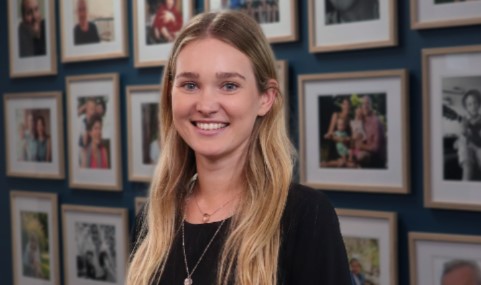What do rare cancera disease where abnormal cells split without control and spread to other nearby body tissue and/or organs patients need? The answer is complex. As with many challenges faced in the rare cancer world, this topic is hampered by limited research and investment in this space. But we are looking to change that.
We have partnered with La Trobe University on a unique research project, investigating the unmet needs of rare cancer patients, an incredibly important and exciting piece of work in the Australian setting.
The partnership is an innovative new approach to traditional PhD projects, where the candidate is integrated into the industry they are researching. The ultimate outcome should be work that directly and meaningfully affects those the project has focussed on.
Driving this project is La Trobe University PhD student, Tamsin Farrugia. Rare Cancers Australia (RCA) General Manager, Christine Cockburn is providing Industry Supervision for Tamsin which ensures that the project is based in the real world and can have a real impact on the lives of people in Australia living with rare cancers.
“I am thrilled to be undertaking this work as part of my PhD. While there have been multiple studies completed on the unmet supportive care needs of common cancers like breast and prostatea walnut-shaped gland in the male reproductive system that is responsible for producing semen - a bodily fluid that acts as a vessel for sperm transport during ejaculation cancers, there has been very little research undertaken to identify the specific gaps rare cancer patients face,” Tamsin explained.
“There was however a systematic literature review published last year which produced some interesting findings. It revealed that when it comes to common cancers, the unmet needs seem to be prevalent in the physical and psychological domains. For rare cancer patients, these unmet needs were more informational.”
In more than 11 years of cancer navigating, we have also found this need to be significant, with many of the patients and families we support noting how difficult it is to find information and resources because of the rarity of their condition.
“We are hoping to use this project to investigate this more. The domain of ‘information’ is so broad. We want to find out what type of information will make a real difference to rare cancer patients and carers – is it information about different diagnoses, dealing with a prognosisto predict how a disease/condition may progress and what the outcome might be, treatment options, or how to live well with cancer for example?” Tamsin continued.
“If we can identify what is most important to those impacted, and identify and hone in on specific elements within this broad ‘information’ category, we can develop targeted strategies and resources that better support and empower patients and families.”
Tamsin is currently undertaking the first phase of this research, a systematic literature review exploring existing interventions that address informational needs across all types of cancers.
Once this in-depth process of discovery is complete, she will be interviewing rare cancer patients and carers on their experiences, observations and needs to better inform the design of a supportive care pilot program and ensure it is patient-led from the outset. These interviews will inform next steps and allow us to work towards our goal; implementation of the pilot program to address the information needs of people living with a rare cancer, to improve patient experience and health-related quality of lifethe overall well-being of a person diagnosed with cancer, encompassing both physical and emotional aspects of health.
This work is just beginning, we will keep you updated on our progress and how you can play a part.
